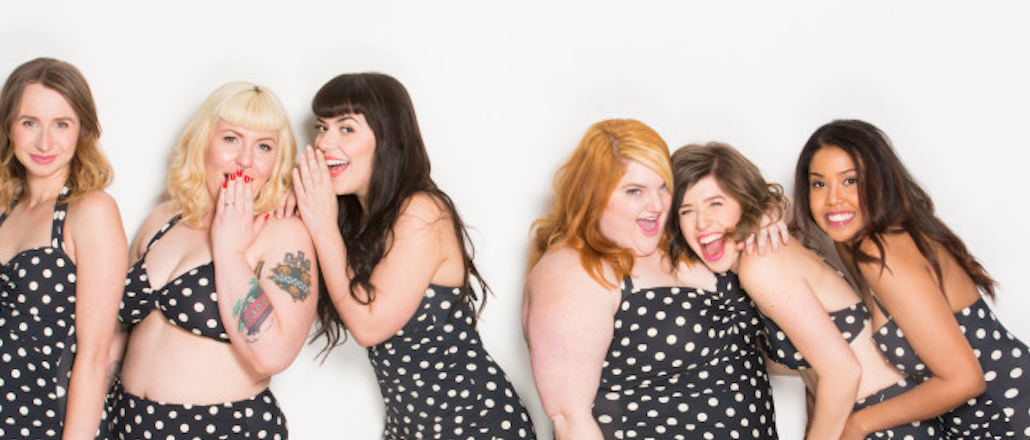Secure your place at the Digiday Media Buying Summit in Nashville, March 2-4

 Dove’s “Real Beauty” campaign may be widely heralded as the undisputed champion of promoting positive body image among women, but it doesn’t get more real than this.
Dove’s “Real Beauty” campaign may be widely heralded as the undisputed champion of promoting positive body image among women, but it doesn’t get more real than this.
Indie e-retailer ModCloth has unveiled a new digital campaign on its website for its swimwear line, featuring its own employees as the models in the photos — from petites to plus-sized women. Co-founder Susan Koger herself rocks a stylish one-piece; a pregnant employee also appears in one of the line’s more popular items.
A wide spectrum of shapes, silhouettes and sizes of women drives the campaign, proving the brand’s mettle as an advocate for body acceptance. The brand consciously chose to use its own employees in the photos to show that all women — not just models — can look and feel confident in their swimsuits.
“This campaign is a natural fit for who we are and who we want to be for our community,” Joseph DeFerrari, ModCloth’s creative director, told Digiday. “Our customers can actually see and visualize themselves in these photos unlike other catalogs. We like to be a community and a friend to them, not just a brand.”
The campaign is housed in the “Story” section on the company’s website, the brand’s version of a blog. ModCloth is also promoting the message behind the campaign across its social channels, including Facebook and Twitter.
The ModCloth campaign comes as the annual swimsuit issue of Sports Illustrated announced it will feature its first “plus-size” model, Ashley Graham, as part of a campaign for curvy-girl brand Swimsuitsforall. On the brands front, Dove pioneered the authentic beauty trend with its decade-long “Real Women” campaign. Lingerie brand Aerie’s unretouched ads and Under Armor’s ad from last year featuring American Ballet Theater soloist Misty Copeland also worked to provide alternatives to idealized body types.
 This is not the first time ModCloth has taken this stance. Last year, it became the first brand to sign Seth Matlin’s “Heroes Pledge for Advertisers,” vowing to not use Photoshop, manipulate images or otherwise promote unattainable beauty standards. ModCloth also doesn’t typically rely on modeling agencies, instead crowdsourcing its catalogs from its customers wearing its clothing.
This is not the first time ModCloth has taken this stance. Last year, it became the first brand to sign Seth Matlin’s “Heroes Pledge for Advertisers,” vowing to not use Photoshop, manipulate images or otherwise promote unattainable beauty standards. ModCloth also doesn’t typically rely on modeling agencies, instead crowdsourcing its catalogs from its customers wearing its clothing.
It’s a strategy that’s worked well for the brand. Its sales for its expanded plus-size range (size 16+) doubled in 2014 over the year before. The current campaign, according to the brand, is also surpassing expectations — doing two times better than other campaigns thus far on average. On Facebook, two posts about the campaign had an organic reach of 21,800 and an engagement rate of 1,700 and 20,300 and 1,100, respectively. A Tumblr “announcement post” also touched a nerve, racking up 2,988 notes.
More in Marketing

WTF are tokens?
When someone sends a prompt or receives a response, the system breaks language into small segments. These fragments are tokens.

AI is changing how retailers select tech partners
The quick rise of artificial intelligence-powered tools has reshaped retailers’ process of selecting technology partners for anything from marketing to supply chain to merchandising.

YouTube’s upmarket TV push still runs on mid-funnel DNA
YouTube is balancing wanting to be premium TV, the short-form powerhouse and a creator economy engine all at once.





